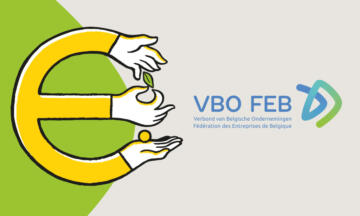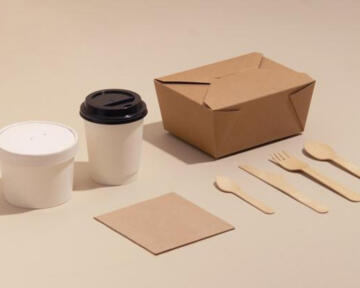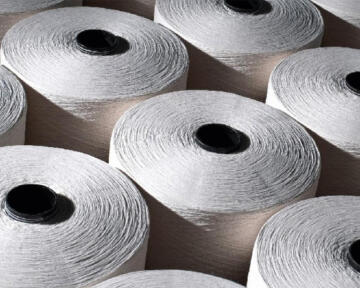Creating a comprehensive overview of our economy’s circularityCircularity describes the quantity of materials managed in a closed loop. is easier said than done. It’s the second time the FBE has picked up the gauntlet as they teamed up with circular expert Möbius. Together they created a dashboard with a host of indicators that assess material use, design, reuseReuse designates all operations by which substances, materials or products that are not waste are used again in an identical way to their originally intended purpose., recyclingAny recovery operation through which waste, including organic waste, is reprocessed to become substances, materials or products that can be used for their initial function or other functions., legislation, ... among Belgian companies. The Federation of Belgian Enterprises doesn’t embark on this tour de force just for the fun it. Gauging progress in terms of circularity is part of their ‘Vision Circular Economy 2030’ that was published three years ago. That biennial status report is necessary to realise the ambitious goals set by the FBE: by 2030, the Belgian industry aims to consolidate its leading position in the circular economyThe circular economy is a restorative and regenerative economy. By maintaining the value of the products, materials and resources in the economy through smart product design, repurposing and/or shared use of products, it reduces the extraction of natural resources by using resources already present in the economy. within a European framework.
One step ahead thanks to circular entrepreneurship
Why focus so hard on circularity? The FBE and its member sector federations are adamant this is the key to tackle a great number of challenges businesses face today, such as essential raw materials becoming scarcer and more expensive but also the dependency on uncertain energy sources and the resulting high price tag. What’s more, companies that are making significant progress on the road to circular entrepreneurship can showcase this, giving them an edge in the search for customers, staff and other partners.
Not enough added value from recycled material
Like in the previous report from two years ago, our country emerges as a world leader in terms of recycling. Our long tradition of separate waste collection and a relatively high use of secondary raw materials are the main reasons for that high score. Good marks, in other words, but dig a little deeper and you’ll also find areas for improvement. For instance, the added value (expressed in Gross Domestic Product) our companies generate per unit of used materials or waste is below the European average. So, we are avid recyclers but we generate too little added value with the materials we use and the waste they produce. That is also reflected in our material footprint: compared to 2016 it has remained stable or has even increased.
Efforts to boost circularity
Although many Belgian firms strive to adopt more circular work methods, the FBE feels the report doesn’t show an actual evolution in that sense. While this doesn’t mean our businesses aren’t making progress, the overall figures do not yet exhibit a trend to confirm that the Belgian economy is evolving towards circularity. Changing that is not the sole responsibility of the entrepreneurs but also that of the government. A stable and supportive policy framework is needed to promote more change. The various governments are in frequent contact on this subject to optimise collaboration and with the intent to develop a transparent long-term strategy. The FBE is calling for a nationwide federal survey to gain a deeper insight into the figures and evolutions. After all, measurement is the key to knowledge!
Be sure to check out the Circular Economy Progress Report for all figures, conclusions and recommendations.




